Ever wonder how long does goat milk last to maintain its freshness?
As a highly nutritious and delicious alternative to cow’s milk, it’s essential to understand its shelf life. This article explores the duration goat milk lasts and what factors influence its longevity.
We will address queries concerning storage conditions, peak freshness periods, and tell-tale signs of spoilage.
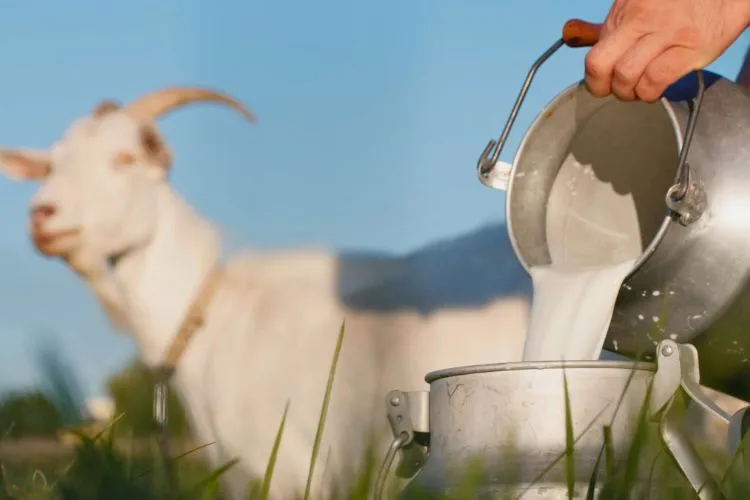
Discover best practices to increase the lifespan of goat milk, ensuring you get the most out of this unique dairy product.
How long does goat milk last?
Fresh, raw goat milk, if kept refrigerated at a temperature of 4°C (about 39°F), usually remains safe to consume for 2-3 days. If pasteurized properly and stored under the same cool conditions, the shelf life extends to about 7-10 days.
It’s important to remember, however, many factors can influence these durations including the cleanliness of the milking procedure and the health of the goat.
On the other hand, frozen raw goat milk can last up to a year. If you don’t plan on using your fresh goat milk within a few days, you might want to consider freezing it.
For commercially purchased, sealed and unopened goat milk, it can last until the ‘best by’ date, typically 2-3 weeks after purchase. Upon opening, it should be used within 5-7 days.
As with all dairy products, practicing safe handling and storage methods goes a long way in preserving freshness.
How long does goat milk last out of the fridge?
Goat milk left unrefrigerated at room temperature should not be kept for more than two hours.
Bacterial growth accelerates at higher temperatures, and since goat milk has smaller fat globules than cow’s milk, it becomes more susceptible to developing off-flavors and spoilage.
To preserve the freshness and quality of goat milk, always store it in a cool environment between 35-40°F (2-4°C).
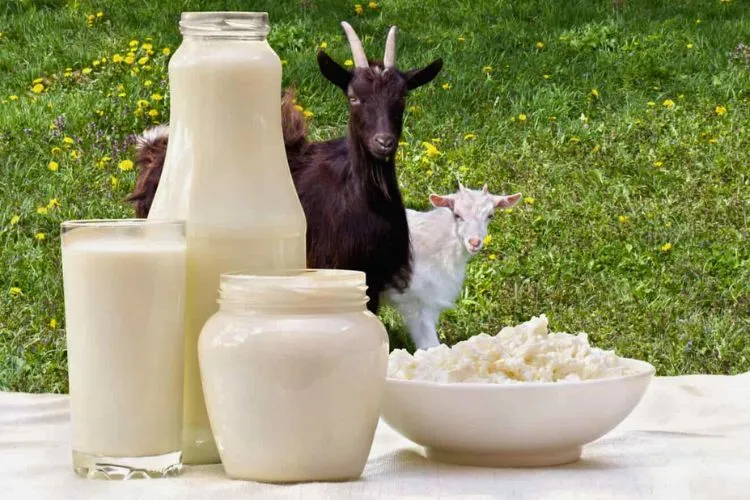
If refrigeration is not immediately available, consider using insulated containers or coolers with ice packs to maintain a lower temperature.
Keep in mind, however, that the ideal solution is to consume or refrigerate the milk within the two-hour timeframe to ensure its safety and taste quality.
How long does goat milk last in the fridge?
When properly refrigerated at a temperature at or below 4°C (or 39°F), fresh, raw goat milk can last 2-3 days. Pasteurized goat milk, under the same ideal conditions, will typically have an extended shelf life of about 7-10 days.
However, these timeframes can vary depending on factors like cleanliness during milking and the goat’s health. Thus, it’s suggested to use the milk as soon as possible to fully enjoy its flavors and nutritional value.
Commercially purchased, unopened goat milk can generally last until the ‘best before’ date, which is typically 2-3 weeks from the purchase date.
Once opened, it should ideally be consumed within 5-7 days for optimal freshness. To maintain its quality, try to minimize the time the milk is kept outside the fridge, even when it’s in use.
How to increase the shelf life of goat milk?
Growing popular for its taste, nutritional benefits, and digestibility, goat milk still bears the question, “How can we keep it fresh for longer?”
Here is a step-by-step guide to increase the shelf-life of your treasured goat milk.
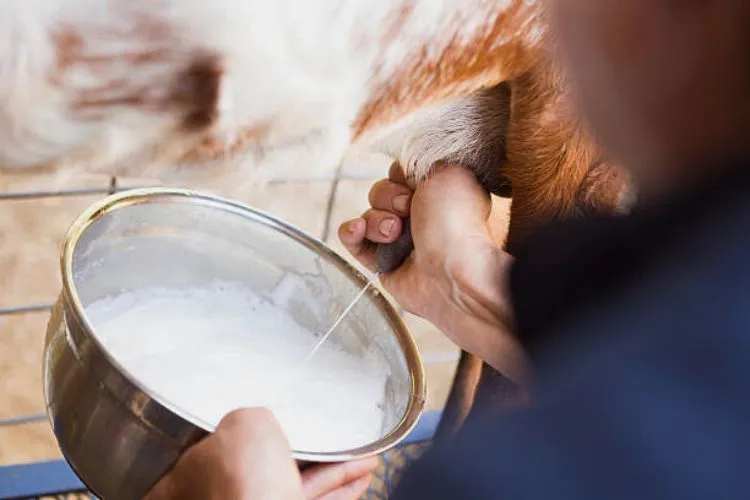
- Follow Proper Milking Techniques: Ensure your hands, milking equipment, and the goat’s udders are thoroughly clean before milking to reduce the risk of bacterial contamination, which can shorten the milk’s viability.
- Quick and Proper Cooling: Prompt cooling of goat milk is vital to preserve its quality. Aim to chill it to 4°C (39°F) within two hours of milking. A rapid drop in temperature can significantly stall bacterial growth and maintain the milk’s freshness.
- Pasteurize if Possible: Pasteurization (heating the milk to kill bacteria) can extend the shelf life of goat milk to over a week. It must be done properly with a careful balance: enough heat to kill harmful bacteria, but not so much that it alters the milk’s taste and benefit.
- Use the Right Containers: Store your goat milk in clean, airtight containers to ward off contaminants and unwanted odours from other foods. Glass jars are usually ideal, offering a robust barrier to odours and easy sanitisation.
- Refrigerate: Always store goat milk in the fridge at or below 4°C (39°F). Precise refrigeration impedes bacterial growth, maintaining the quality of the milk.
- Freezing: If you need to store milk long-term, considering freezing. Frozen goat milk can last up to a year without losing significant quality. Freeze milk in small portions for easy defrosting.
- Monitor Regularly: Always check for signs of spoilage like off-odor, change in color or taste before using the milk. Remember, safety first!
By adhering to these practices, you can maximize your goat milk’s lifespan, ensuring you enjoy this rich and healthful dairy option at its prime.
How do you store milk for years?
Having a supply of milk that lasts for years is often desired for emergencies or long-term storage. Here’s how you can achieve extended preservation with various types of milk.
Powdered Milk
Powdered milk is dehydrated milk that can last for years when properly stored. Here’s how to store it:
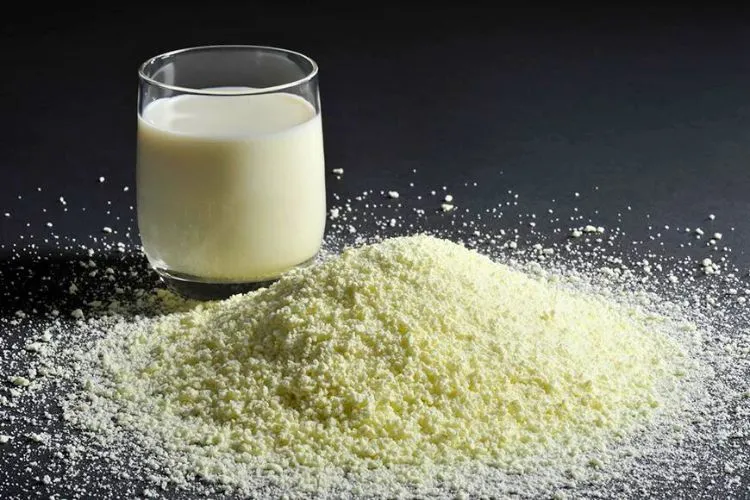
- Choose high-quality powdered milk: Opt for a high-quality full-fat milk powder or instant non-fat dry milk with good reviews regarding taste and shelf life.
- Repackage if necessary: If milk powder comes in a non-durable package, repack it in a sturdy, airtight container, such as a food-grade, Mylar bag or vacuum-sealable bag. Add an oxygen absorber to remove remaining oxygen and prevent spoilage.
- Store in a cool, dry, and dark place: Powdered milk is sensitive to high temperatures and humidity. Keep it in a cool, dry, and dark place to maximize its shelf life. A cool basement or pantry works well.
- Rotate your stock: Don’t forget to rotate your milk supply by replacing older stocks with new purchases. This will ensure your long-term stock stays fresh.
Canned Evaporated and Sweetened Condensed Milk
Canned milk, such as evaporated and sweetened condensed milk, can last for years, but only if stored correctly.
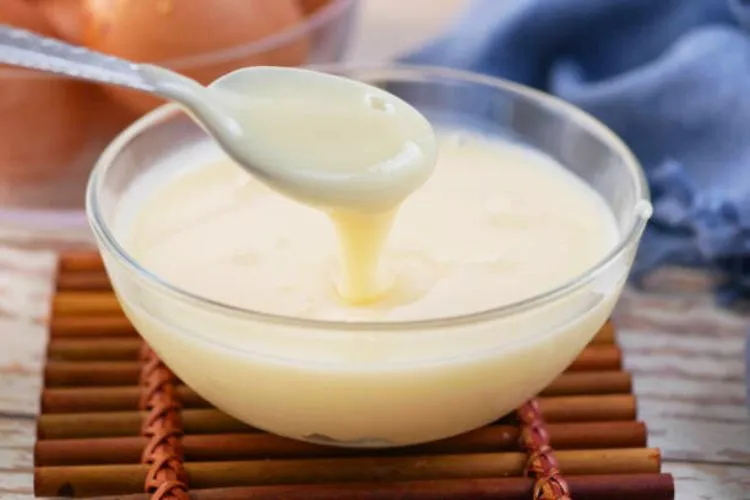
- Store cans in a cool, dark, and dry place: Temperature fluctuations and moisture can diminish the shelf life of canned goods. Opt for a cool, dark, and dry place to increase their longevity.
- Check for dents and rust: Ensure the cans are free of dents and rust, both of which can compromise seals and food quality.
- Rotate your stock: Make a habit of rotating canned milk supplies for maximum freshness.
UHT Milk
UHT (Ultra-High Temperature) milk is processed to provide an extended shelf life. It requires no refrigeration until opened, and can generally last around 6-9 months.
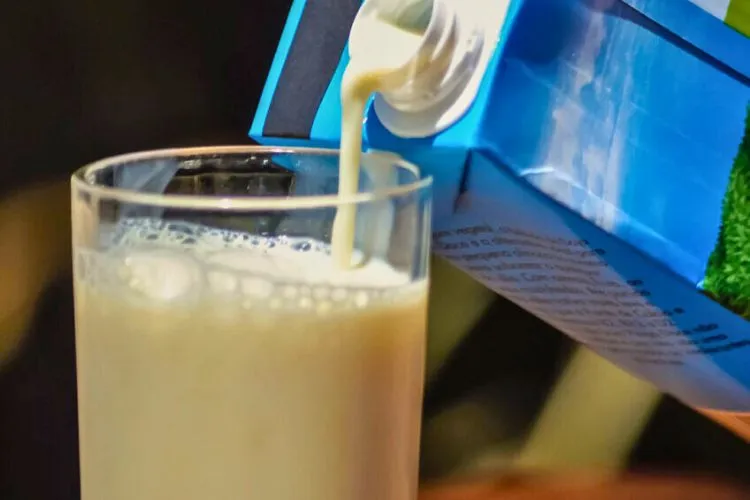
- Check the best-by dates: Only purchase UHT milk with the longest best-by date. Rotate your stock regularly.
- Store in a cool, dry, and dark place: Avoid sunlight and temperature fluctuations to maintain quality.
Home-canned milk (not generally recommended)
Home-canning milk is not a USDA-recommended practice, as it poses a serious risk for foodborne illness. However, there are specific cases where it might be necessary (i.e., off-grid living).
Choose to study the process in-depth and follow meticulous sanitation and canning procedures to avoid possible risks.
Preserving milk for years can be achieved with proper storage practices, attention to shelf life, and using alternative milk products. Always check the milk for signs of spoilage before consuming it, prioritizing safety first.
Frequently Asked Questions (FAQs)
Does goat milk last longer than cow’s milk?
Not necessarily. Goat milk doesn’t necessarily last longer than cow’s milk. Both types of milk, when stored properly, will typically last about 7-10 days in the refrigerator after they’ve been opened. The shelf life of both goat and cow milk can be extended via methods like pasteurization and UHT (Ultra High Temperature) treatment.
What milk has the longest shelf life?
The type of milk with the longest shelf life is generally UHT (Ultra High Temperature) treated milk, including those that are non-dairy. UHT treatment sterilizes the milk, allowing it to last for several months when unopened and stored at room temperature. Additionally, powdered milk also has a considerably longer shelf life since it is dry and does not contain moisture.
What milk does not expire?
No milk is truly non-perishable, but some types like powdered or evaporated milk have an extended shelf life. Powdered milk can last for up to 18 months under appropriate storage conditions. However, it should be reconstituted with water before use and once it is, it should be used immediately or kept refrigerated at all times.
How can I increase the shelf life of milk naturally?
There are a few natural ways to extend the shelf life of milk. One method is to keep the milk extremely cold, as a lower temperature slows the growth rate of bacteria. Another method involves boiling the milk, which can kill any existing bacteria. It’s also important to use a clean utensil every time you take milk to avoid introducing new bacteria to the milk.
How to tell if goat milk is spoiled?
There are several signs that goat milk is spoiled. These include a sour or off smell, a change in color (usually turning yellow), clumps or chunks in the milk, and a sour or unpleasant taste. If the milk bottle or carton also appears bloated or swollen, that’s another indication that the milk might have gone bad. Trust your senses – if in doubt, it’s safer to discard it.
Conclusion:
The shelf life of goat milk is typically between 7-10 days when properly stored in the refrigerator after opening. Factors such as pasteurization and UHT treatment can affect the longevity of the milk.
While goat milk doesn’t necessarily last longer than cow’s milk, it offers unique nutritional benefits and a distinctive taste.
To ensure the freshness of your goat milk, always pay attention to smell, color, and texture, and store it in an appropriately cold environment.
Adopting proper storage and handling practices will allow you to make the most out of this nutritious and versatile dairy product.


